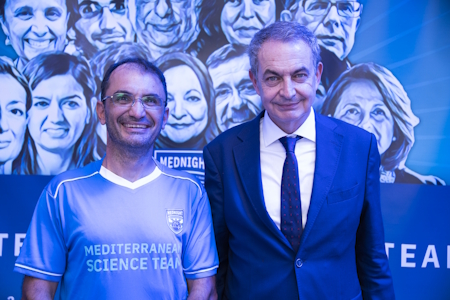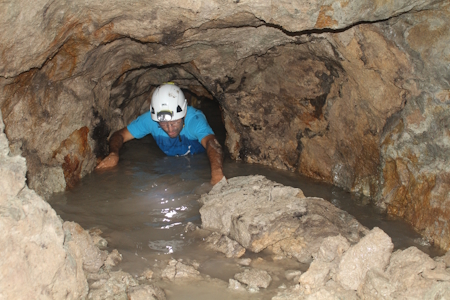
Born on April 1, 1976, in Nicosia, Prof. Dr. Salih Gücel has dedicated his career to understanding and protecting natural ecosystems. After graduating from Türk Maarif College, he pursued a degree in Fundamental and Industrial Biology at Ege University, where he graduated in 1997. His academic journey continued with a flora-focused thesis at Celal Bayar University, followed by doctoral studies at Ege University on the conservation biology of rare and endemic species. In 2005, he became the Director of the Environmental Sciences Institute at Near East University, playing a pivotal role in national and international projects aimed at addressing environmental challenges. Over the years, he has published over 100 international articles, contributed to 20 chapters in international books, and authored four national books.
Prof. Dr. Gücel’s outstanding achievements were celebrated at a gala in Alicante, Spain, where he received an award from former Spanish Prime Minister José Luis Rodríguez Zapatero for his impactful work as a member of the Mediterranean Science Team (MST). Supported by the European Commission, the MST focuses on addressing the shared challenges of 23 Mediterranean countries through research, innovation, and collaboration. Prof. Dr. Gücel emphasized the importance of safeguarding the region’s biodiversity and urged for political action to implement scientifically grounded solutions. His work underscores the collective responsibility of Mediterranean nations to preserve their shared heritage.
We deeply appreciate Prof. Dr. Gücel’s invaluable contributions, which will undoubtedly inspire and guide future generations of scientists.
How did your academic career start and what was the biggest motivation for you to pursue this field?
My desire to pursue biology education emerged after I started taking science classes in high school. Initially, I noticed a growing interest in biology over other science subjects like physics and chemistry. This realization led me to decide to study biology at the university level. As I began my biology education at Ege University, my interest in what I was learning increased day by day, and I decided to specialize in the field of living organisms. During my university years, the topics that often occupied my mind were related to the environment. This interest was further solidified through workshops I attended before starting my doctoral studies, where I developed a deeper understanding of the relationships between environmental components and their effects on maintaining natural balance. These experiences significantly contributed to building my knowledge base in this area.
Can you tell us about the Mediterranean Science Team and the award you received? What does this award mean to you and what kind of a place does it hold in your career?

The Mediterranean Science Team (MST) consists of scientists whose work has made significant contributions to developing knowledge and/or strategies to address shared issues faced by Mediterranean basin countries or whose research has significantly enhanced the scientific projection of Mediterranean nations. The team strives to disseminate the idea of unity in science for the 500 million people across 23 countries bordering the same sea.
This award made me feel that my efforts have been recognized and appreciated.
What aspects of your work or projects do you think contributed to achieving this success?
The work for which I received the award was the project titled “The Diversity of the Buffer Zone in Cyprus.” This project involved the two communities living on the island of Cyprus working together on a scientific project for the first time. Additionally, obtaining data on the biodiversity of the buffer zone and the challenges it faces, for the first time in half a century, played a significant role in earning this award.

Being deemed worthy of this award was a testament to how far my scientific work had reached and how much it was appreciated. After receiving this award, my recognition in the scientific community increased even further, and my international collaborations expanded. I felt proud to represent and promote Near East University, the Turkish Republic of Northern Cyprus, and the Turkish Cypriots.
Do you have a specific goal you aim to achieve in your field of research or a problem you wish to solve in the future?
Global warming and climate change are phenomena that threaten the lives of all living beings. In recent years, our research has focused on studying the impacts of global warming and climate change on living organisms. Our studies explore how living beings are affected by these issues and how they respond. Assuming these problems will intensify in the future, I plan to further concentrate my research efforts in this area.
What long-term contributions do you hope your work will make to society or the scientific community?
I hope my work will serve as a foundation for other research in the scientific community. For society, I aspire for my studies to contribute to a future where natural balance is preserved, the effects of environmental pollution and climate change are minimized, and overall quality of life is improved.
Do you have a message that you believe could inspire the next generation of researchers in the academic world?

What you need to do is keep your curiosity alive. Always remember, great discoveries often begin with simple questions. Asking “Why?” or “How?” can help us go beyond the known truths. Curiosity will always lead you to deeper and more satisfying understandings. Trust in your curiosity and never let it fade.